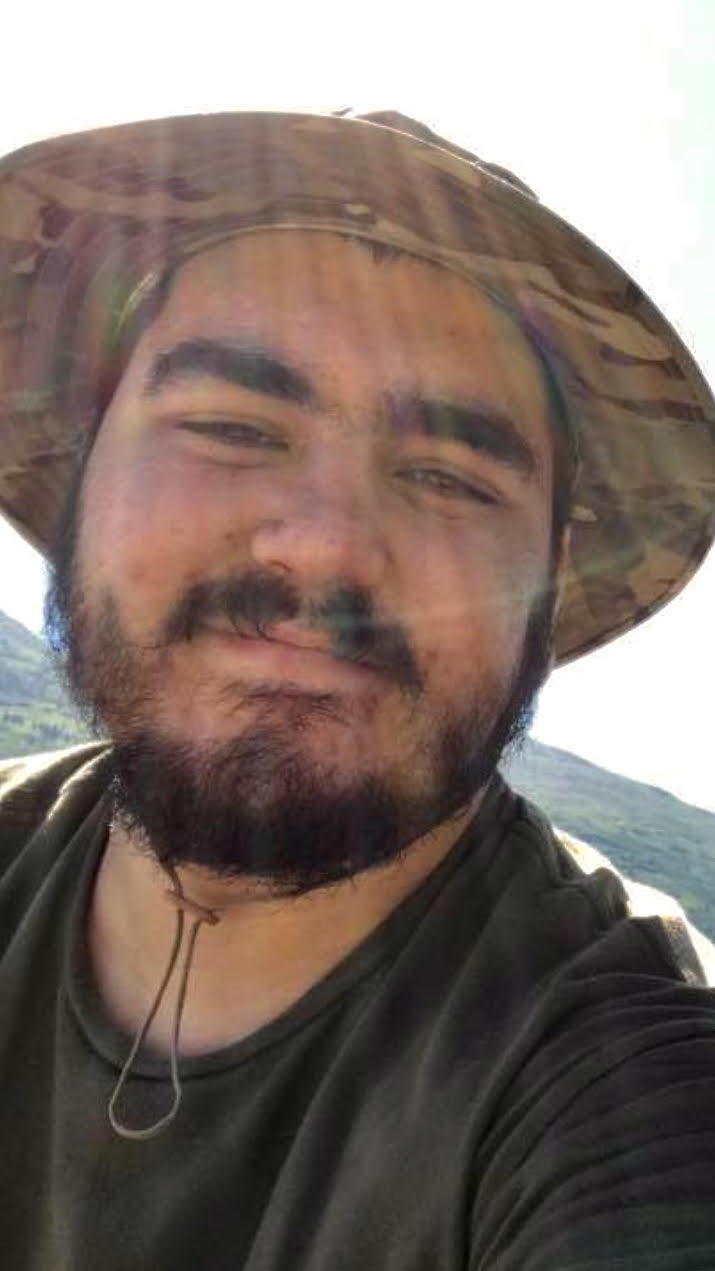BLaST celebrates October Scientist of the Month

Since 2016, the Biomedical Learning and Student Training (BLaST) program at UAF has highlighted scientists from all biomedical fields through its Scientist of the Month articles. BLaST Scholar and °®ОЫґ«ГЅ biology undergraduate student Tyler Baker-Chapman was selected as the October 2022 BLaST Scientist of the Month.
Tyler Baker-Chapman, of Thai descent and a first-generation college student, is a senior pursuing a B.S. in Biological Sciences with a concentration in physiology. He is a second-year BLaST Scholar and an Honors College scholar. He served in the U.S. Air Force and was born and raised in Banning, California. He will graduate in December 2022. "I absolutely love Thai and Lao food as it is one of the ways I embrace my heritage."
Baker-Chapman’s research focuses on host-bacteriophage interactions, coevolution, and antibiotic resistance. He is interested in understanding how synergistically using antibiotics and phages selects against antibiotic resistance without driving evolutionary resistance to antibiotics and phages simultaneously. Baker-Chapman’s experiment studied the coevolution of T4 Bacteriophage and E. coli REL606, an ancestral strain used in Dr. Richard Lenski’s Long-Term Evolution Experiment at Michigan State University.
Baker-Chapman chemically transformed the E. coli strain by incorporating a pBR322 plasmid, which conferred ampicillin and tetracycline resistance. He then treated each cell line with ampicillin (amp), tetracycline (tet), and a combination of both antibiotics. He also added T4 phage to select for phage resistance in the presence of antibiotics. Samples were then analyzed to investigate changes in antibiotic and phage susceptibility.
“Antibiotic resistance is a global health concern today where bacteria have become resistant to many current antibiotics. It is extremely hard to develop novel antibiotics, so by studying bacteria’s natural killer, bacteriophage, it can help us develop better treatment strategies.”
This fall, Baker-Chapman will present at the Annual Biomedical Research Conference for Minoritized Scientists. During this past spring, he attended the annual Experimental Biology 2022 conference in Philadelphia, PA. He hopes to bring advanced medicine, culturally-safe healthcare, and innovative research to underserved communities across Alaska.
Baker-Chapman would like to thank Dr. Mario Muscarella and his previous BLaST Research, Advising, and Mentoring Professional, Theresa Vertigan, who mentored and supported him throughout his research journey.
“Dr. Mario’s experience and leadership inspired me to become the best version of myself I can be. His passion for research and innovation helped me realize the importance of lifelong learning, and helped pave the way towards a career in medicine. I also give thanks to Theresa for being such a great support. She helped me through impostor syndrome and provided a sense of confidence in my ability to succeed as a researcher and working towards becoming a medical school candidate.”
Baker-Chapman was a °®ОЫґ«ГЅ Resident Assistant where he mentored a great diversity of students throughout their academic journeys. He explained, “Having faced many incidents of struggles and strife, I found that it is very difficult to focus on education when you’re faced with challenges outside the walls of the university. These challenges are often out of your control.” He utilized life experiences to help students cope with many challenges minorities face in first-time college experiences. Baker-Chapman is currently a TA for Biology F115X, Fundamentals of Biology I, at UAF.
These BLaST Scientist of the Month articles are shared across all °®ОЫґ«ГЅ and University of Alaska Southeast rural campuses and with BLaST’s partners: IДјisaДЎvik College, Fort Lewis College, DinГ© College, Salish Kootenai College and Alaska Pacific University. For more BLaST Scientist of the Month highlights, visit .
The Biomedical Learning and Student Training program is a NIH-funded °®ОЫґ«ГЅ program that enhances capacity for undergraduate biomedical research training and efficacy for engaging students from diverse, especially rural Alaskan, backgrounds in education and training for biomedical research careers. BLaST started in 2014 and continues to provide research opportunities for faculty, staff and students through its many workshops, curriculum, and research support and is in its second five-year phase II program.
Any questions about this article or any BLaST publications, please contact Amy Topkok.


